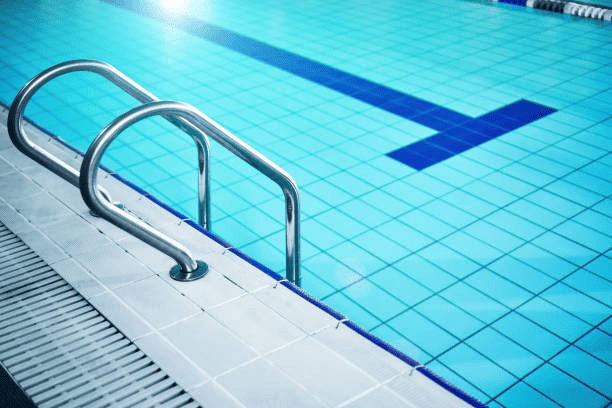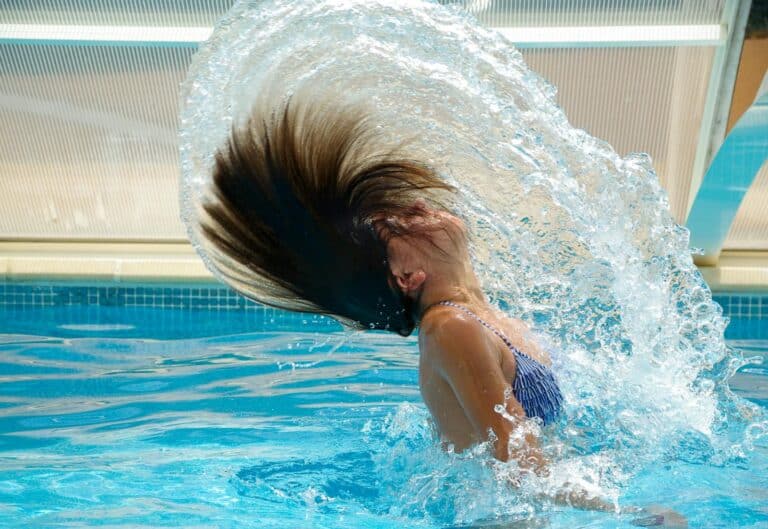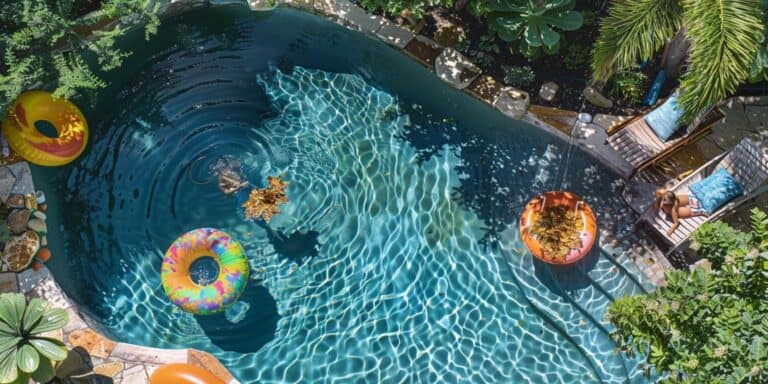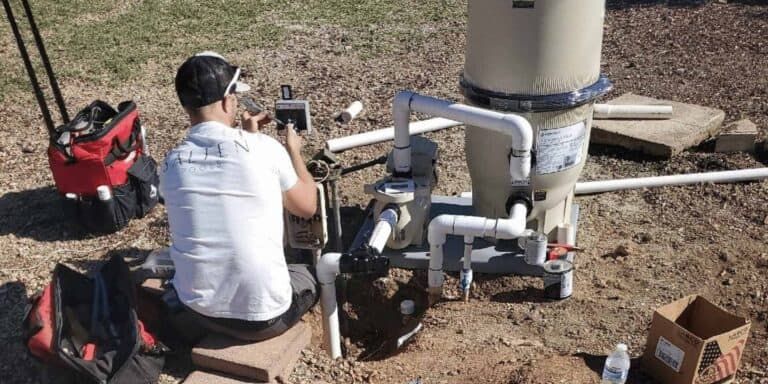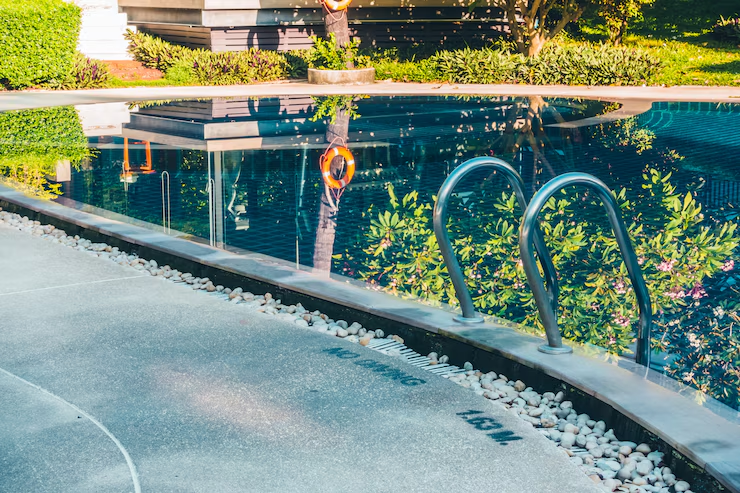Saltwater vs. Chlorine: Which System Is Best?
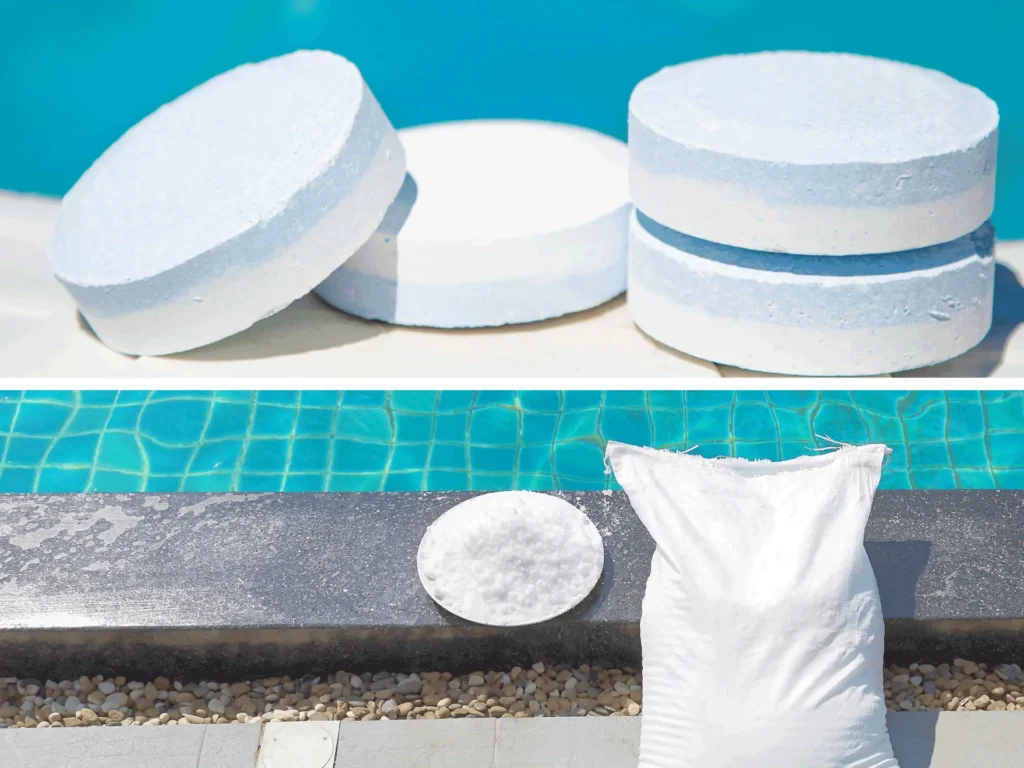
One of the many decisions you’ll need to make when designing your pool is what type of water system you’ll have, and this is an important decision since the main responsibilities of this aspect of your pool are cleaning and sanitizing the water—keeping it healthy. When it comes to a pool water system, you basically have two choices: Saltwater (sometimes referred to as a saline system) and chlorine. Since this decision can be tricky and expensive to change down the road (although it is possible!), we’re diving deep into the pros and cons of both so you can make the best decision long-term for you and your pool. First up, a saltwater system.
Saltwater System
When you hear the word, “saltwater,” you might think about the saltwater in the ocean. While salt is a major component of this system, it does still use chlorine to clean and sanitize the water. However, instead of adding chlorine, this system uses a process called electrolysis via a generator (sometimes called a chlorinator) to convert the salt into the chlorine needed to keep your pool healthy year-round.
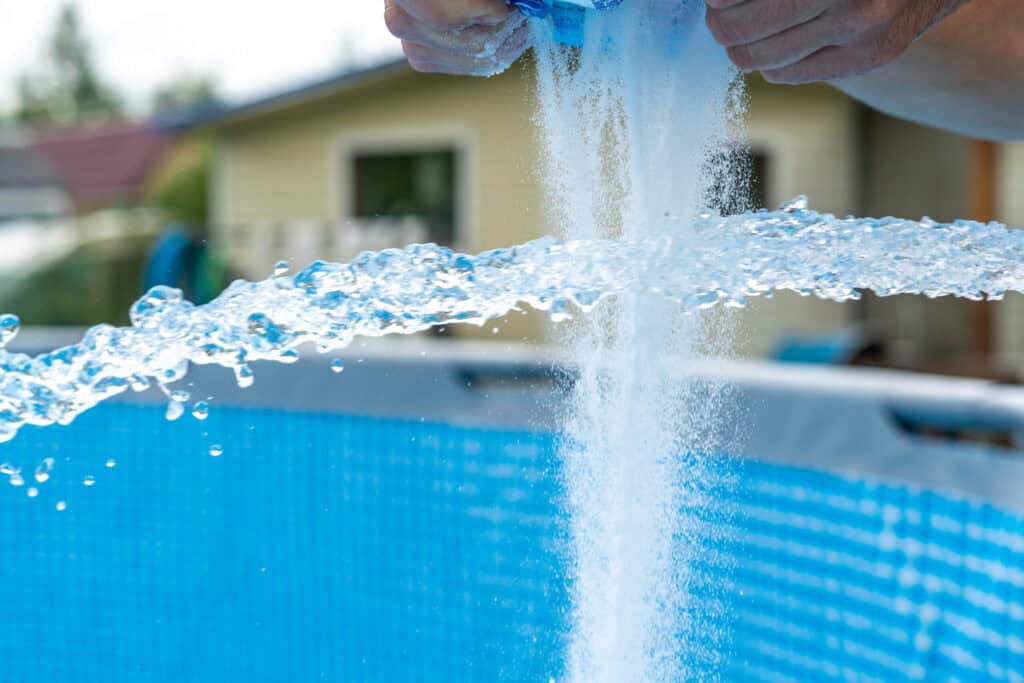
PROS
CONS
Next up, the pros and cons of a chlorine pool system.
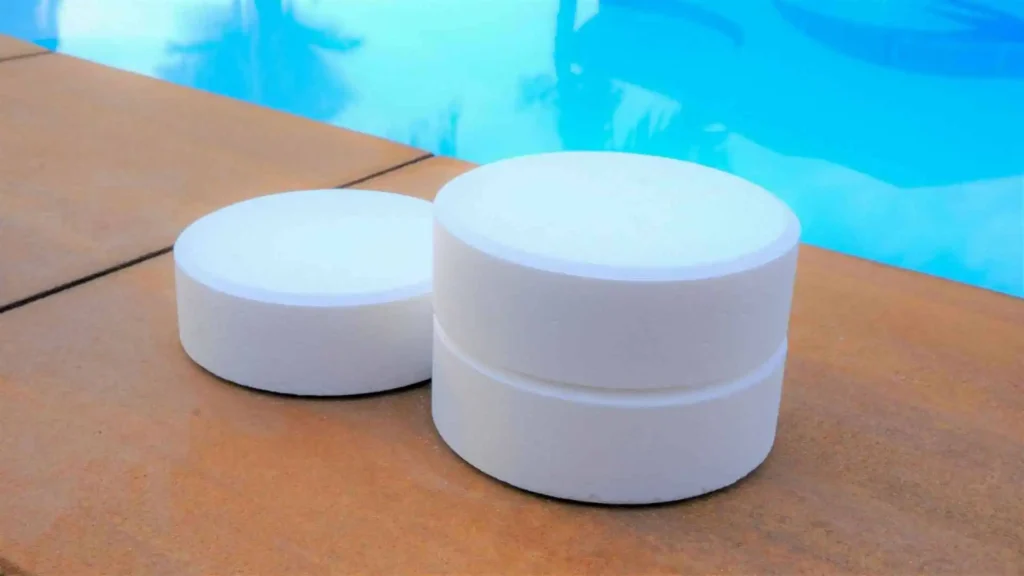
PROS
CONS
So, which type of system is best for you and your pool? That depends on both your pool-building and annual pool budgets. A saltwater pool system can add thousands to your pool building bottom line, so that’s a huge factor, although you can convert your chlorine system to saltwater down the road. When it comes to annual maintenance costs, some experts estimate these at $100-$400 for saltwater and $400-$800 for chlorine, so those long-term, year-after-year costs are important to keep in mind too. Since both systems have both pros and cons, be sure to ask your pool professional for advice based on their experience in your area as well as more exact figures so you can make the best choice for both the present and the future. Need a pool professional? We’d love to be your go-to experts for anything pool-related. Contact us today, and let’s talk about how we can make your pool dreams come true—within your budget!
Request a proposal
Get a quote for a new pool or remodel or weekly service or pool repairs!

